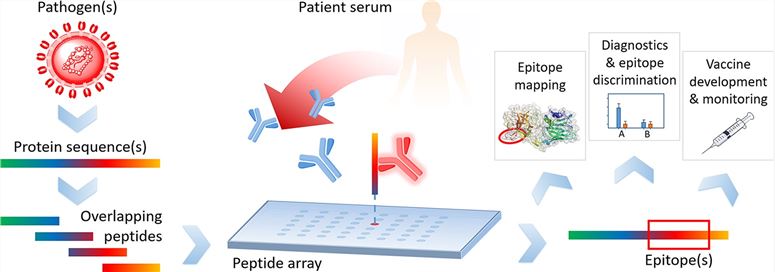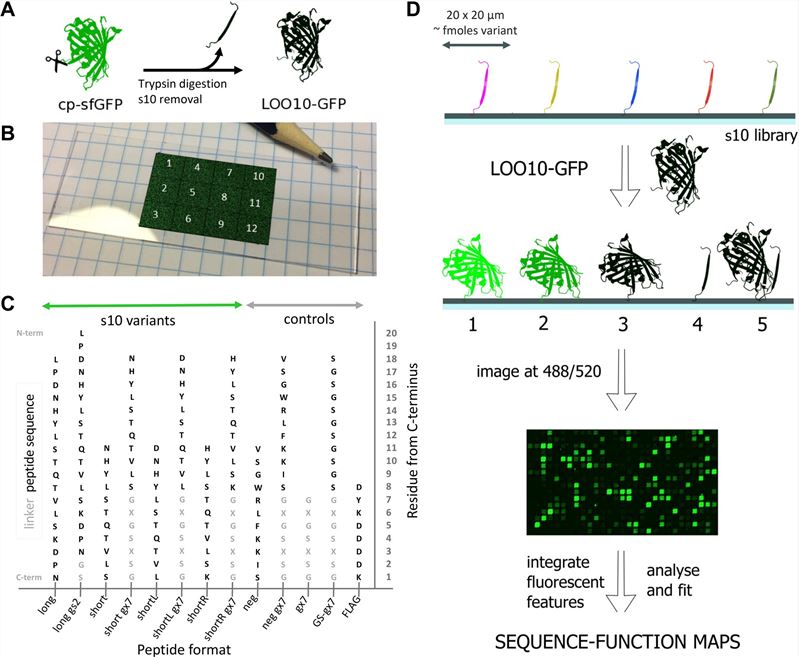With the rapid development of biotechnology, high-throughput peptide array technology has become an indispensable part of modern medical research, especially demonstrating its unique value in the field of infectious disease research. Creative Biolabs, as a leading company in biomedical research, has launched a peptide discovery service utilizing high-density peptide array technology, aimed at providing strong technical support for infectious disease research.
 Fig.1 Typical workflow of a peptide microarray experiment.1,3
Fig.1 Typical workflow of a peptide microarray experiment.1,3
The principle of high-density peptide array technology is based on arranging hundreds to thousands of different peptides in high density on a fixed substrate (such as a glass slide or specially treated filter paper) through in situ synthesis methods. In this way, a large number of peptides can be synthesized and analyzed on a small chip. During the screening process, these peptides interact with target proteins or other biological macromolecules. By detecting these interactions, effective peptides that bind to specific pathogens can be identified.
 Fig.2 Experimental setup.2,3
Fig.2 Experimental setup.2,3
High-density peptide array technology plays a crucial role in the development of drugs for the treatment of infectious diseases. This technology greatly accelerates the identification of potential drug targets and the screening of drug candidate molecules through its high-throughput screening capabilities and high specificity.
1. Peptide design and synthesis: According to the research needs and objectives of the client, Creative Biolabs' expert team will design and synthesize specific peptide sequences.
2. Preparation of high-density peptide arrays: The designed peptides are fixed in high-density on specially treated carriers, such as glass slides or filter paper.
3. Experiment execution and data analysis: Conduct high-throughput screening experiments to identify peptides that specifically bind to pathogens or hosts, and interpret the results using advanced data analysis methods.
Creative Biolabs, through its high-density peptide array technology service, provides an efficient and precise experimental platform, specially tailored for researchers and drug developers. This service, with its high degree of customization and flexibility, can precisely meet the unique needs of different clients. It greatly accelerates the research and development process of drugs and vaccines related to infectious diseases, contributing innovative scientific tools and methods to the global fight against infectious diseases. If you are interested in our services or have any questions, please feel free to contact us.
References: